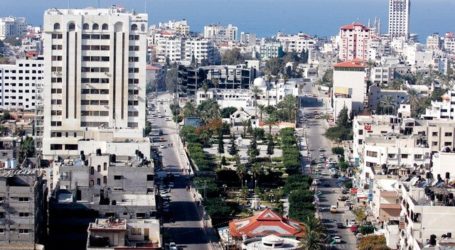ISRAELI BANK CHIEF URGES ACTION FOR PEACE WITH PALESTINE
 Al Quds (Jerusalem), 20 Sha’ban 1434/29 June 2013 (MINA) – The outgoing governor of Israel’s central bank says Israel should strengthen Palestinian leaders to help create an independent Palestinian state.
Al Quds (Jerusalem), 20 Sha’ban 1434/29 June 2013 (MINA) – The outgoing governor of Israel’s central bank says Israel should strengthen Palestinian leaders to help create an independent Palestinian state.
Stanley Fischer, an American-Israeli economist who is highly respected in Israel, told Israel Army Radio that bolstering the Palestinian leadership is one move Israel could make to try to reach a peace agreement with the Palestinians.
Fischer says he believes it is possible to reach a peace deal in which Israel gives up most of the West Bank and keeps only the large settlement blocs in exchange for compensation to the Palestinians.
Fischer, formerly of the World Bank and International Monetary Fund, has served as the Bank of Israel’s governor for eight years. He is stepping down this month, according to Alray media report monitored by Mi’raj News Agency (MINA).
Israeli–Palestinian conflict
The Israeli–Palestinian conflict is the ongoing struggle between Israelis and Palestinians that began in the mid 20th century. The conflict is wide-ranging, and the term is sometimes also used in reference to the earlier sectarian conflict in Mandatory Palestine, between the Zionist yishuv and the Arab population under British rule. The Israeli-Palestinian conflict has formed the core part of the wider Arab–Israeli conflict.
Despite the long going peace process and the general reconciliation of Israel with Egypt and Jordan, Israelis and Palestinians have failed to reach a final peace agreement. The remaining key issues are: mutual recognition, borders, security, water rights, control of Jerusalem, Israeli settlements, Palestinian freedom of movement and finding a resolution to the refugee question.
The violence resulting from the conflict has prompted international actions, as well as other security and human rights concerns, both within and between both sides, and internationally. In addition, the violence has curbed expansion of tourism in the region, which is full of historic and religious sites that are of interest to many people around the world.
Many attempts have been made to broker a two-state solution, involving the creation of an independent Palestinian state alongside an independent Jewish state or next to the State of Israel (after Israel’s establishment in 1948).
In 2007 a majority of both Israelis and Palestinians, according to a number of polls, preferred the two-state solution over any other solution as a means of resolving the conflict. Moreover, a considerable majority of the Jewish public sees the Palestinians’ demand for an independent state as just, and thinks Israel can agree to the establishment of such a state.
A majority of Palestinians and Israelis view the West Bank and Gaza Strip as an acceptable location of the hypothetical Palestinian state in a two-state solution. However, there are significant areas of disagreement over the shape of any final agreement and also regarding the level of credibility each side sees in the other in upholding basic commitments. (T/P04/E1)
Mi’raj News Agency (MINA)




